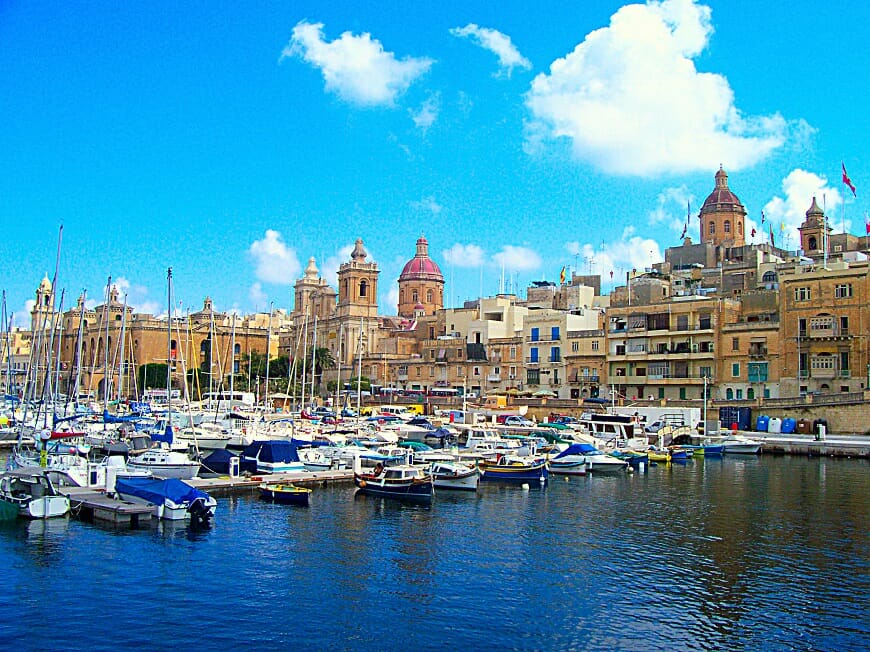Buying Property In Malta

Buying a home in Malta is made easy by the short distances – the island is only 30 kilometres at its widest – and the fact that English is an official language. Estate agents speak English, newspaper ads and many property websites are in English too – try maltaproperty.com
Malta is a property loving nation – 80% of people own. Estate agents don’t need to be licensed, although there is a Federation of Estate Agents and there are moves to regulate agents soon. Instead of an agent you might use a sensar, a freelance property finder who takes a cut from the purchase price for finding and facilitating the sale.
You will often see the phrase ‘house of character’”. This means an older house, usually in the traditional gold-coloured stone. They’re beautiful when renovated and are popular with expats. For apartments, some upmarket developments have gone up close to Valletta in recent years, particularly Pendergardens, Fort Cambridge and Tigne Point. There are also rural properties available with short commutes into town. Country property details may refer to land areas in tumolo or tumoli, which are 5/18 of an acre.
People from the European Union are allowed to live, own property and work in Malta. While they are allowed to buy a home anywhere on the islands of Malta and Gozo to use as a main residence, for additional or investment properties they are limited to a Special Designated Area (SDA), which are usually new property developments. There are restrictions on renting out your home when you’re not there too, so ensure you get this checked out before signing anything.
Non-EU residents must get an Acquisition of Immoveable Property (AIP) permit to buy property. There are also schemes for obtaining residency in return for investing in property, the so-called ‘golden visas’, which have proved popular among Russian and Far-Eastern buyers.
Malta uses a notary system for buying property. The buyer has the right to choose the notary, and the notary’s first job will be to prepare the Promise of Sale agreement, or konvenju, a binding contract. At the same time the buyer pays a deposit of 10%, plus 1% of the selling price as a down payment of the eventual 5% stamp duty. The konvenju includes the price, what that covers, any work required before completion, the payment schedule and date for completion.
The notary then does the usual legal checks and searches. Many buyers also employ their own specialist property lawyer. The Promise of Sale lasts for three months, so at any point before that the completion can go ahead with the signing of the Final Deed at either the notary’s office or the bank if there is a mortgage. The remainder of the selling price is transferred at this point, along with tax, the remainder of the stamp duty and the notary’s fees, and the buyer is given the keys.
You should expect to pay no more than an additional 8% on top of the property price. That includes the 5% stamp duty, plus 1% to the notary, registration fee and your own lawyer.
By Christopher Nye